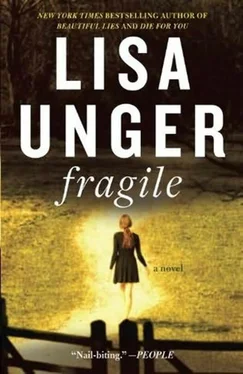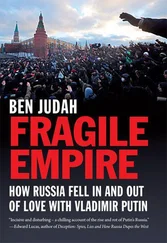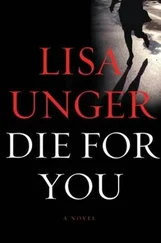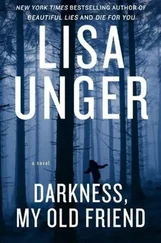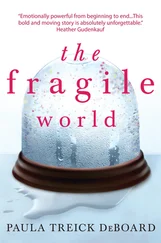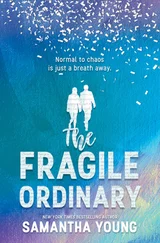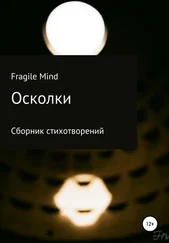For years, Henry endured. He didn’t tattle. He didn’t fight back. He just made himself as small as possible inside and waited for whatever it was Travis was inflicting to pass. More humiliating, if less painful than the actual event, was the wake of attention from his classmates. Henry, are you all right? You should kick his ass, man . One of his equally geeky friends-because Henry had been a major geek, with big, thick glasses, plaid shirts, and corduroy pants-would walk with him to the nurse’s office, offering solace and advice. But most humiliating of all was when Maggie was the one to walk with him.
“He’s a jerk,” she’d tell him. “And a loser. One day you’ll be making millions and he’ll be pumping gas.”
“I know,” he’d say. He didn’t know any such thing. He was just wishing one day she’d look at him without pity in her eyes. One day he wanted her to look at him with awe and pride, maybe even with love. But that had never happened, though she’d always looked at him with the affection and acceptance of enduring friendship. That was something. That was a lot.
These days, he’d like to think that the type of systematic torture he’d suffered at the hands of Travis Crosby would not be tolerated. It would be noticed and addressed, because educators should know by now how toxic was the relationship between bully and victim, how it might turn deadly.
But then, a kind of “boys will be boys” attitude allowed Henry’s torture to continue without much interference. Once he even saw the PE teacher smirk at one of Travis’s favorite activities, stealing Henry’s underwear and towel while he was in the shower and hiding them so that Henry was forced to walk wet and naked to his locker while everyone laughed.
That was more than twenty years ago, but as he pulled in front of the Crosby home, it might as well have been last month. He felt the surge of adrenaline in his hands as he parked the car and shut the ignition. Whatever Henry’s history with Travis, Henry cared about Marshall. Maybe because he saw more of himself than he did of Travis in the boy. Maybe because he recognized Marshall as another of Travis’s victims. Or maybe there was something deeper, something less noble than caring for the welfare of a troubled boy. A kind of desire to salt the wound of their past.
In high school, Henry had loved Maggie Monroe. He loved her like an ache, a terrible pain in an organ he couldn’t place or name. An illness for which there was no cure. She hadn’t loved him, of course. But she was the reason, in his junior year, that he bulked up, got contacts, convinced his mother to take him shopping for some less dorky clothes. She was the reason he’d beaten Travis in front of the entire school, in response to the most minor of assaults. As they’d passed each other on the bleachers, Travis had growled low and mean, “Fucking faggot.” It was just loud enough for the other guys in Travis’s group to hear and start to laugh.
There was no flash of rage; he was not overcome by emotion. He just turned quickly and put a hand on Travis’s shoulder, spun him around.
“Say it again,” said Henry.
Surprise widened Travis’s eyes for a second, but then he smiled. “What? Are you deaf, too? Fucking faggot.”
While Travis’s crew was still laughing, Henry brought his fist out so fast and so hard that Travis fell back to the ground with the impact as it connected with his jaw. Henry thought it would be loud, like in the movies, his fist falling with a satisfying smack. But no, flesh on flesh was a soft sound. His own hand hurt so badly that he pulled it back to his chest, surprised at the heat rocketing up his arm.
He almost apologized, so chastened was he by the pain. But then there was something about Travis down, his hands up, his friends standing slack-jawed with shock, there was something about that momentary hush when everyone around them stopped what they were doing to look on, that caused Henry to drop to his knees, straddle Travis, and just start punching-face again, abdomen, ribs-until someone pulled him away, still swinging. He hadn’t lost himself to anger; he was aware. He didn’t feel good or triumphant. In fact, the physical effort, the pumping adrenaline, made him nauseated. Then he heard a girl weeping. “Stop it. Stop it. Please. Stop.”
But it wasn’t a girl. It was Travis. He didn’t feel good, then, either. He looked down to see the other boy crying, lying on his side, curled into a fetal position. He felt relief only, mingled with something dark, a knowledge that he’d let the likes of Travis Crosby bring him low. He, a straight-A student with a perfect attendance record, was suspended.
“I’m surprised at you, Henry,” said Mrs. Monroe, Maggie’s mother and the school principal. “You’re bigger than that. The smarter among us must use our intellects to resolve conflict. We can’t let the Travis Crosbys of the world drive us to violence.”
A month before, he’d have been crushed to earn her disapproval, anyone’s disapproval. On that day in her overwarm office, Henry found he just didn’t care. He remembered all the details-a pretty picture of Maggie as a little girl, the smell of coffee brewing somewhere, his student record open on her desk, a pencil holder shaped like an elephant, flecks of dust floating in the bright sunlight. But what he remembered most was the calm he felt. This is what it feels like to do the right thing that others will think is wrong. This is what it feels like to stand up and fight back .
“Sometimes the Travis Crosbys of the world don’t understand anything else, Mrs. Monroe.” Back talk! He’d been taught better. He thought he’d get one of the legendary Monroe tongue-lashings. But when he looked up at her, she just frowned and shook her head. She agreed with him; he saw it in the pale blue eyes behind her thick lenses.
“Suspension, Mr. Ivy, though it does pain me. One week.”
He accepted his punishment and happily spent the week eating junk food and watching television, while his mother fretted about his “permanent record.”
“What will the college people say?”
His father, a research scientist who barely visited the real world, so lost was he in his own gray matter, surprised Henry by saying, “I have confidence that you did what you had to do, Son.”
“You do?”
“Sometimes the bullies of the world need a little humbling,” he said, echoing Henry’s own feelings. His dad was a good man, a bit absent-minded but always there when he was needed.
In Marshall Crosby, Henry saw himself but without the benefit of loving parents. Someone smart but lacking a sense of worth, abandoned by his mother, abused by his father. Someone being victimized by Travis Crosby. He’d wanted to give Marshall a break no one else had seemed willing to give.
As he got out of the car and crossed the street, he thought that Maggie was probably right. It wasn’t a good idea to visit the Crosby home, a run-down two-story in The Acres. The white paint, graying and chipped, some of the black shutters askew on their hinges-the whole place had an aura of neglect. The lawn was patchy, overgrown in some places, dead in others. The garage door stood open; it was so filled with old junk that there was no room for a vehicle. The old Chevelle that he’d seen Marshall driving around in sat in the driveway, its engine clinking as if it had recently been running. He stepped on the gray porch and felt the wood creak beneath his weight.
Henry didn’t just have Marshall on his mind. The news of Charlene Murray’s disappearance had rocketed through the school. There was an aura of worry and excitement in the hallways, klatches of girls gathered whispering, dramatic. He picked up snippets as he walked the halls. She ran away to New York City. She had a fight with her mom. She was afraid of her stepfather. I heard she has a boyfriend in Manhattan. I thought she was with Rick Cooper! The big news when he left the school that day was that she’d updated the status bar on her Facebook page: Charlene is large and in charge, living in New York City! The Hollows SUCKS!
Читать дальше
